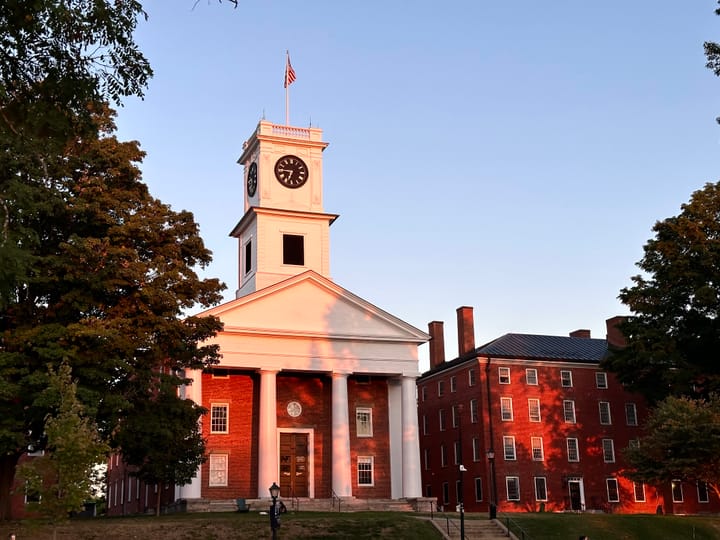CHI Salon Dissects Black and South Asian Identities
The Center for Humanistic Inquiry hosted a salon to discuss the intersection of Black and South Asian identities in the context of Vice President Kamala Harris’ presidential campaign.
The Center for Humanistic Inquiry (CHI) organized a panel on Oct. 2, 2024 to discuss Black and South Asian identities, particularly in relation to Vice President Kamala Harris’ presidential campaign.
The panel featured a variety of perspectives from faculty members, including Chair of Sexuality, Women’s and Gender Studies Amrita Basu, CHI fellow and Visiting Lecturer in Anthropology Nicole Cox, Chair of Asian American and Pacific Islander Studies Pawan Dhingra, Assistant Professor of American Studies and Black Studies Jallicia Jolly, and Assistant Professor of Black Studies and Political Science Jared Loggins.
Through the lens of Harris, the discussion delved into the histories of colonialism and slavery in relation to Black and South Asian peoples as well as current struggles of racism, colorism, and xenophobia plaguing both communities in America and abroad.
Dhingra began the discussion by criticizing South Asians who claim Harris as one of their own without confronting widespread anti-Blackness and colorism plaguing the South Asian diaspora.
“I have a plea to my fellow South Asian Americans to embrace these cross-racial solidarities that are part of our history,” said Dhingra.
Jolly continued the conversation by naming the ongoing conversations and debates about Harris’ racial identity on social media, ranging from hashtags to former president Donald Trump's statements invalidating her Blackness.
Jolly said that the discourse surrounding Harris’ identity “signals [that] many have critiqued … the lasting impacts of legacies of slavery and colonialism embedded within its racial and gender hierarchies that inscribed class and color.”
During her section of the panel, Basu drew parallels between her mother and Harris’. Both South Asian women were ferociously independent, defiant against traditional gender norms, involved in civil rights advocacy, and feminist role models for their daughters.
She also discussed the merging of Black Jamaican and Indian cultures in Harris’ upbringing, “she [Harris] used to attend a Hindu temple but also a Black church. And this is quite consistent with the pluralism that once existed in India … [Harris’] Jamaican, Indian, and American [identities] were inextricably linked and made her who she was,” said Basu.
Lastly, Loggins concluded the panel by examining the shared racial struggles of Black and South Asian people, especially pertaining to anti-Black and anti-South Asian rhetoric and riots in the United Kingdom.
Although many were familiar with the topic, students believed the discussion was quite relevant in light of the upcoming election. “It was insightful to hear different perspectives on this topic,” said Summer Le ’27, “Especially considering all the discourse around Kamala’s race, it’s unfortunate that people cannot accept Kamala for simply who she is.”





Comments ()